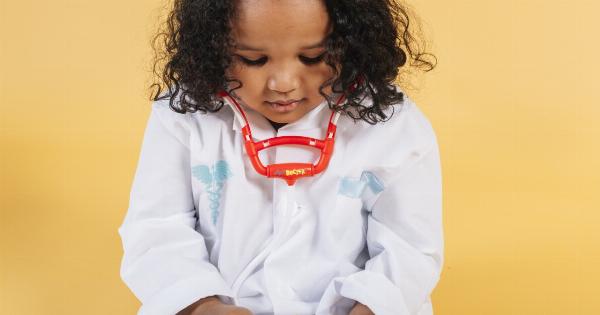Apologizing is a crucial social skill that helps individuals acknowledge their mistakes, take responsibility for their actions, and show empathy towards others.
While adults are expected to apologize when they make a mistake, whether it be a small error or a major transgression, what about children? Do children apologize in the same way? In this article, we will explore the development of children’s apology skills, whether they understand the concept of apologizing, and how parents and educators can encourage and teach children to apologize.
The Development of Apology Skills in Children
Apologizing is a complex skill that requires an understanding of empathy, remorse, and the ability to consider others’ perspectives. Like many other social skills, children’s ability to apologize develops gradually over time.
Stage 1: Early Childhood
During early childhood, which includes the toddler and preschool years, children start to understand basic emotions and social interactions. However, their ability to apologize is still limited.
Young children may not have the language skills to express their apologies verbally, but they might use non-verbal gestures like hugging, sharing toys, or offering comforting gestures to show remorse.
Stage 2: Elementary School Years
As children enter the elementary school years, their understanding of social rules and norms deepens.
They can recognize when they have done something wrong and may begin to utter simple apologies like “I’m sorry.” However, at this stage, apologies may often lack genuine empathy and may be more of a way to avoid punishment or to restore a disrupted relationship. Children may struggle to understand the impact of their actions on others and might apologize only when explicitly told to do so by an adult.
Stage 3: Middle Childhood and Beyond
As children grow and develop emotionally, their ability to apologize becomes more nuanced and genuine. By middle childhood and beyond, children start to grasp the importance of empathy and showing remorse.
Apologies are no longer just empty words but are accompanied by a deeper understanding of the impact their actions have on others. At this stage, children can offer apologies that express genuine remorse, take responsibility for their actions, and make amends to repair relationships.
The Importance of Teaching Children to Apologize
Teaching children to apologize is vital for their social and emotional development. When children learn to apologize, they develop skills such as empathy, self-reflection, and accountability.
Apologizing also helps children navigate conflicts and repair relationships, fostering a healthy and supportive social environment.
Strategies to Teach Children to Apologize
Parents and educators can implement various strategies to teach children how to apologize effectively:.
1. Be a Role Model
Children learn by observing the behavior of adults around them. To teach children to apologize, parents and educators must model apologizing when they make mistakes.
By demonstrating a sincere and genuine apology, adults can set an example for children on how to take responsibility for their actions.
2. Teach Empathy
Empathy is a fundamental aspect of apologizing. Children need to understand how their actions affect others. Encourage children to put themselves in someone else’s shoes and consider how the other person might feel.
This understanding of empathy helps children develop a genuine sense of remorse and encourages them to apologize.
3. Use Role-Playing
Role-playing scenarios can provide an opportunity for children to practice apologizing in a safe and guided environment. Parents and educators can create hypothetical situations and encourage children to apologize and discuss their feelings.
This practice allows children to develop the skills needed for future situations where apologies are required.
4. Encourage Accountability
Apologizing involves taking responsibility for one’s actions. Parents and educators should encourage children to acknowledge the consequences of their behavior and understand how their actions impact others.
By promoting accountability, children are more likely to offer sincere apologies.
5. Foster a Safe and Supportive Environment
Creating a safe and supportive environment allows children to feel comfortable apologizing without fear of judgment or punishment. Parents and educators should emphasize that apologizing is a positive and courageous act, rather than a sign of weakness.
By praising children for apologizing, they are more likely to develop and use their apology skills.
Conclusion
While the capability to apologize develops gradually in children, it is possible to teach and nurture this essential social skill.
By understanding the developmental stages of apology skills and employing effective strategies, parents and educators can play a crucial role in fostering empathy, self-reflection, and accountability in children. By teaching children to apologize, we equip them with tools to navigate conflicts, repair relationships, and contribute to creating a kinder and more compassionate society.





























